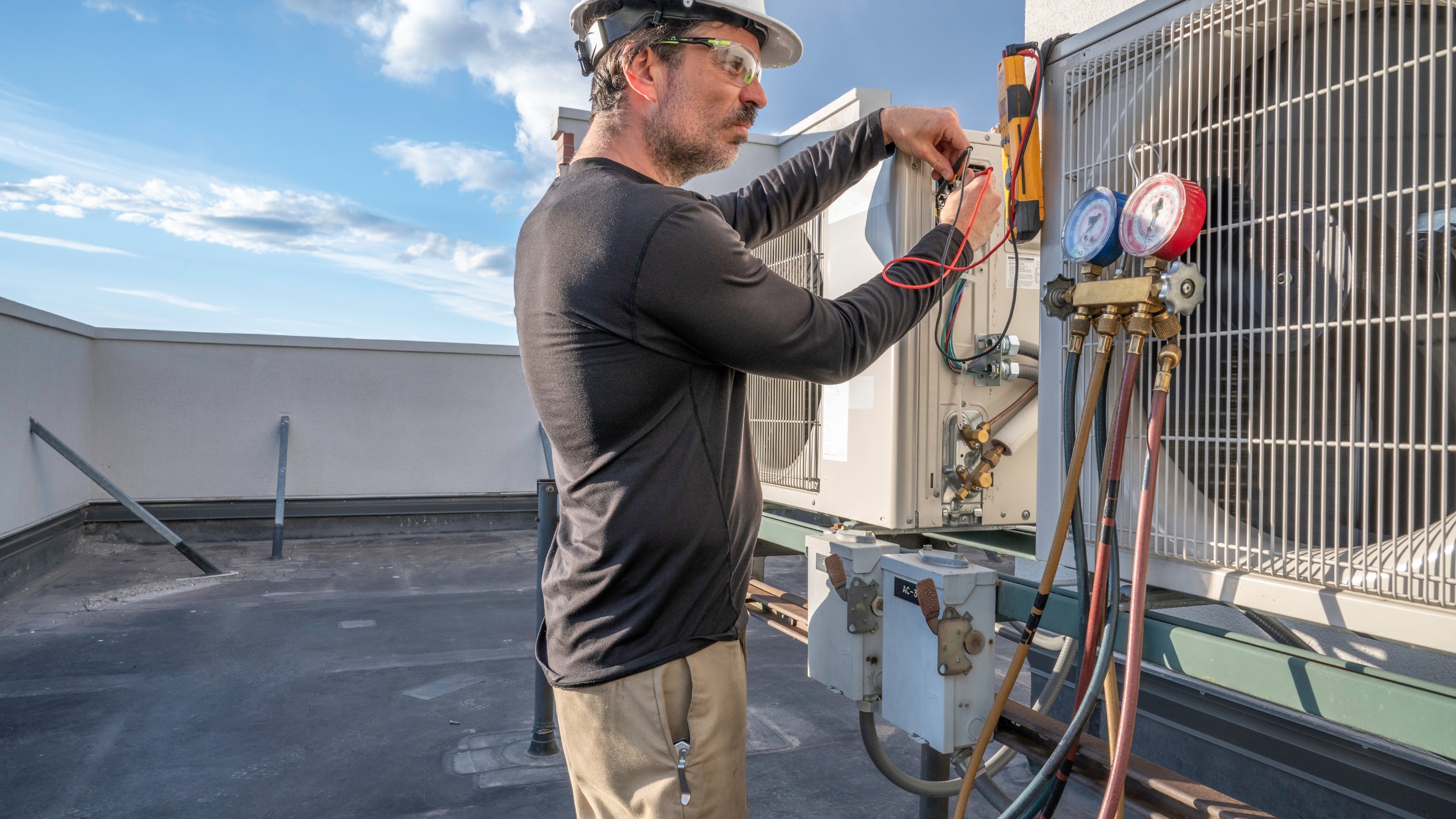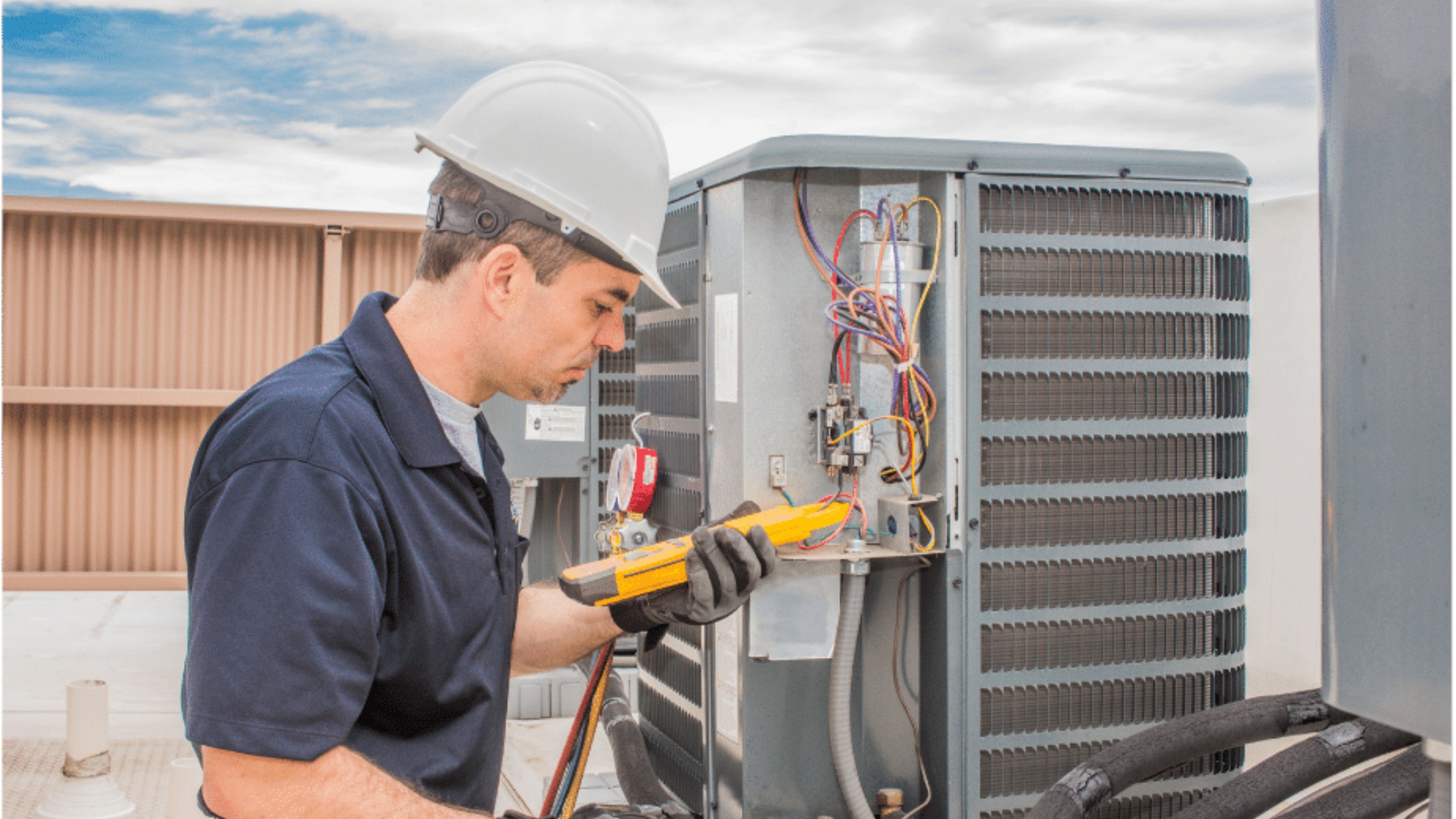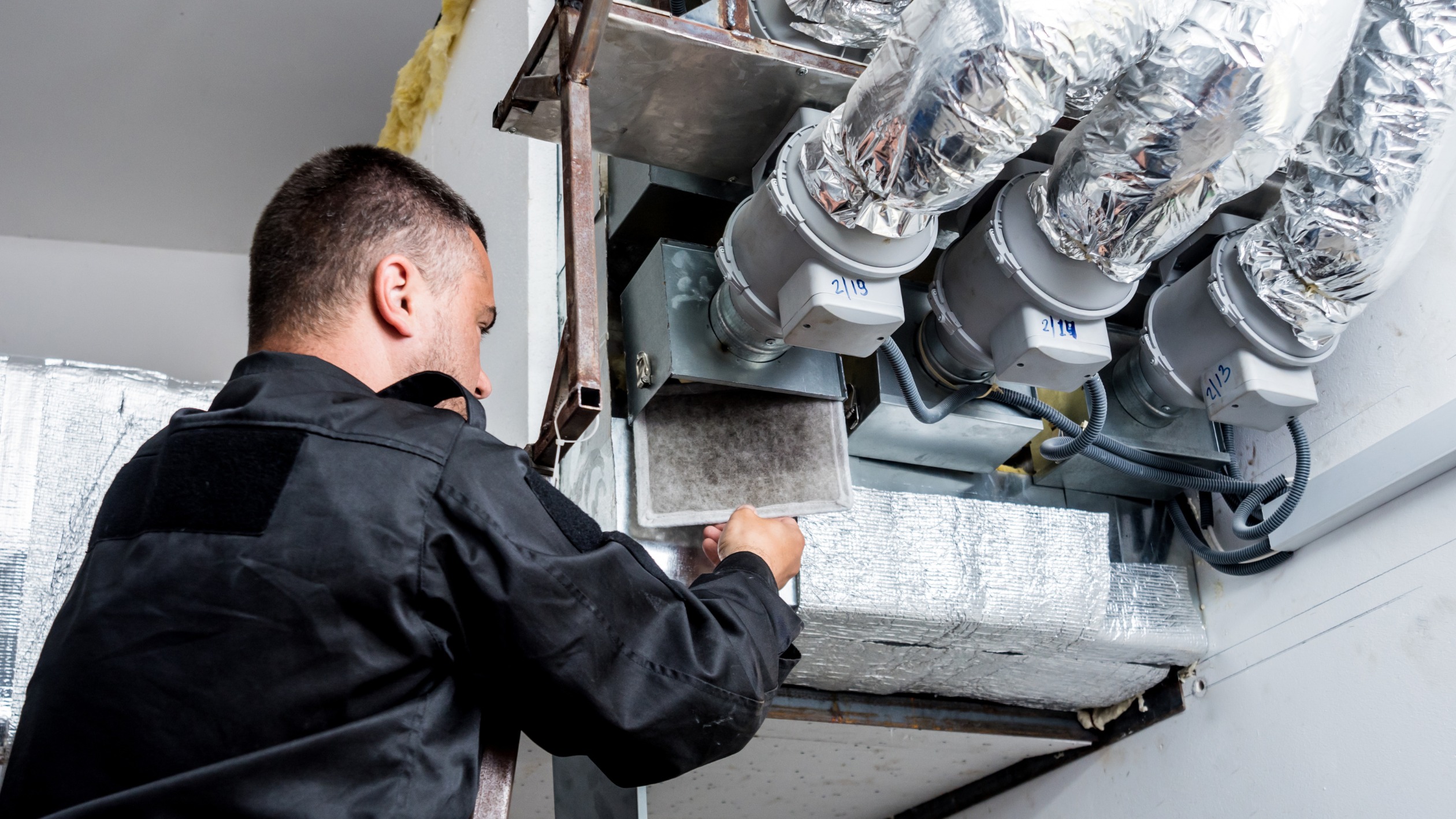Your Path to Becoming an HVAC Technician: A Simple Step-by-Step Guide

Introduction
Welcome to the world of HVAC, where comfort and technology merge to create ideal indoor environments. In this guide, we’ll walk you through the journey of How to become an HVAC technician in a clear and straightforward manner.
Understand the Role of an HVAC Technician
To start your path toward becoming an HVAC technician, it’s crucial to understand the duties of the job. HVAC technicians handle the installation, upkeep, and fixing of heating, ventilation, and air conditioning systems. Their job is vital in ensuring that these systems work well, keeping people comfortable and safe indoors.
HVAC Technician Salaries
Individuals interested in becoming HVAC technicians can expect a good salary. As of March 27, 2024, credible sources report an average yearly pay ranging from $58,500 to $63,472, which means about $28 per hour.
It’s important to know that salaries can vary because of a few factors:
Experience: Those with more experience usually earn more than beginners.
Location: Pay often depends on where you work. Big cities typically pay more than rural areas.
Specialization: If you focus on specific areas like commercial HVAC or green technologies, you might earn more.
Employer: Larger companies or those offering unionized jobs may provide better pay and extra benefits.
To find the latest salary information for HVAC technicians, you can check:
Job Boards: Websites like Indeed and Glassdoor often show salaries with job listings, giving details about different places and employers.
Salary Websites: Platforms such as Salary.com and Talent.com offer salary ranges based on job titles and locations.

Obtain a High School Diploma or GED
A basic educational foundation is essential for success in the HVAC industry. High school courses in math, physics, and mechanical drawing can provide valuable knowledge that will serve as a solid basis for further training.
Gain Hands-On Experience
Getting hands-on experience is crucial for aspiring HVAC technicians. Consider starting with entry-level positions like HVAC apprenticeships or technician assistant roles to learn practical skills and gain insight into the field.
Registered apprenticeship programs combine classroom learning with on-the-job training under the guidance of experienced technicians. These programs typically last several years and culminate in industry-recognized credentials. You can find HVAC apprenticeship opportunities through
https://www.dir.ca.gov/databases/das/aigstart.asp.
https://www.dol.gov/general/topic/training/apprenticeship.
As mentioned previously, HVAC contractors and trade schools often have their own apprenticeship programs. Reaching out to them directly can be another avenue to find hands-on experience
Pursue Formal Education
There are various options for formal HVAC training programs, including trade schools, community colleges, and vocational schools. These programs offer comprehensive curriculums and certifications that are highly valued in the industry.
HVAC industry associations often maintain directories of schools offering accredited HVAC training programs. Here are a couple of associations to explore:
- Air Conditioning Contractors of America (ACCA): https://www.acca.org/
- Sheet Metal and Air Conditioning Contractors’ National Association (SMACNA): https://www.smacna.org/ – They might have a “Find a Training Program” section.
Obtain Necessary Licenses and Certifications
To practice as an HVAC technician, you’ll need to obtain the required licenses and certifications in your area. This may include passing exams and obtaining industry-recognized certifications such as EPA 608 certification and HVAC Excellence certification.
State Licensing:
- Licensing requirements vary significantly by state. There’s no single website that lists them all. Here’s how to find yours:
- Search online for “[your state] HVAC licensing requirements”. This should lead you to your state’s licensing authority website.
- Look for keywords like “Department of Consumer Affairs,” “Department of Labor,” or “Contractors Board” on your state’s government website.
- EPA 608 Certification:
- This certification is mandatory for all technicians who handle refrigerants. You can find information and testing centers through the Environmental Protection Agency (EPA) website:
- Industry-recognized Certifications (Optional but Highly Valued):
- Organizations like HVAC Excellence offer certifications that demonstrate your skills and knowledge. These are not mandatory everywhere but can significantly boost your resume. Here are some resources:
- HVAC Excellence: https://www.escogroup.org/hvac/ – Search for certification programs and testing centers.
- North American Technician Excellence (NATE): https://natex.org/ – Explore certification options.
- Air Conditioning Contractors of America (ACCA): https://www.acca.org/ – Look for certification programs they recommend.
How to become an Electrician

Build a Strong Professional Network
Networking with industry professionals is essential for career growth in the HVAC field. Joining trade organizations and attending industry events can provide valuable opportunities to connect with fellow technicians, contractors, and suppliers.
Trade Organizations:
- Join HVAC industry organizations: Participating in these organizations allows you to connect with professionals, attend educational events, and stay updated on industry trends. Here are some prominent ones:
- Air Conditioning Contractors of America (ACCA): [https://www.acca.org/] – Offers chapters throughout the USA.
- Sheet Metal and Air Conditioning Contractors’ National Association (SMACNA): [https://www.smacna.org/] – Provides local chapters for networking.
- Heating, Refrigeration and Air Conditioning Contractors Association (HRACA International): [[invalid URL removed]] – Search for local affiliates.
- Industry Events:
- Attend trade shows and conferences: These events offer opportunities to network with professionals from various sectors of the HVAC industry. Here are some resources to find them:
- Trade Show News Network: [[invalid URL removed]] – Search for events by location and category (HVACR).
- Air Conditioning, Heating & Refrigeration News (ACHR News): [https://www.achrnews.com/events] – Look for upcoming events and conferences.
- Local HVACR association websites (mentioned above) often list industry events in their area.
- Online Networking Platforms:
- Connect with professionals on LinkedIn: Join HVAC-related groups and participate in discussions to build your online network.
- Industry forums and communities: Explore online forums and communities dedicated to HVAC professionals. Some popular options include:
- HVAC Talk: [https://hvac-talk.com/]
- Reddit’s r/HVAC subreddit: https://www.reddit.com/r/HVAC/
Additional Tips:
- Actively participate in events and discussions: Don’t just attend events; engage with others, ask questions, and share your knowledge.
- Follow industry publications: Stay updated on industry news and trends to participate in conversations with confidence.
- Offer to help others: Be helpful and supportive to build positive relationships within the network.
Continuously Develop Skills and Stay Updated
Keeping up with new technologies and industry trends is essential for HVAC technicians. It’s important to seek out continuous training and professional development opportunities to broaden your skills and remain competitive in the industry.
Consider Specializing or Advancing Your Career
As you gain experience, think about focusing on particular areas within the HVAC field or moving up into leadership positions. Specializing in areas like commercial HVAC, industrial refrigeration, or green technologies can provide exciting chances for career advancement and growth.
Specialty Areas and Resources:
- Commercial HVAC: This sector focuses on heating and cooling systems for large buildings like offices, hospitals, and schools.
- Resources:
- Air Conditioning Contractors of America (ACCA): Specialization in Commercial HVAC: [invalid URL removed] – Explore resources and certifications.
- Resources:
- Industrial Refrigeration: This involves large-scale refrigeration systems used in industrial processes, food storage, and manufacturing.
- Resources:
- Refrigeration Engineers & Technicians Association (RETA): https://www.reta.com/ – Information on the industrial refrigeration field.
- Resources:
- Green Technologies: This specialization focuses on energy-efficient and environmentally friendly HVAC systems, including geothermal heating and solar cooling.
- Resources:
- North American Board of Certified Energy Professionals (NABCEP): https://www.nabcep.org/ – Provides certifications for building energy professionals.
- US Department of Energy (DOE): Energy Efficient Building Technologies: [invalid URL removed] – Information on energy-efficient HVAC systems.
- Resources:
- Leadership Positions:
- As you gain experience, consider transitioning into leadership roles like:
- Service Manager – Overseeing a team of technicians and managing customer service.
- Project Manager – Leading the planning and execution of HVAC installation projects.
- Sales Manager – Developing and managing sales strategies for HVAC services and equipment.
- HVAC Contractor – Owning and operating your own HVAC business.
Conclusion
Becoming an HVAC technician is a fulfilling journey with plenty of room for growth and satisfaction. By following the steps in this guide and staying dedicated to learning and improving, you can forge a successful and satisfying career in the HVAC industry. Remember, achieving success in this field demands dedication, effort, and a commitment to excellence. Take that first step today and begin your journey toward becoming a skilled and accomplished HVAC technician.